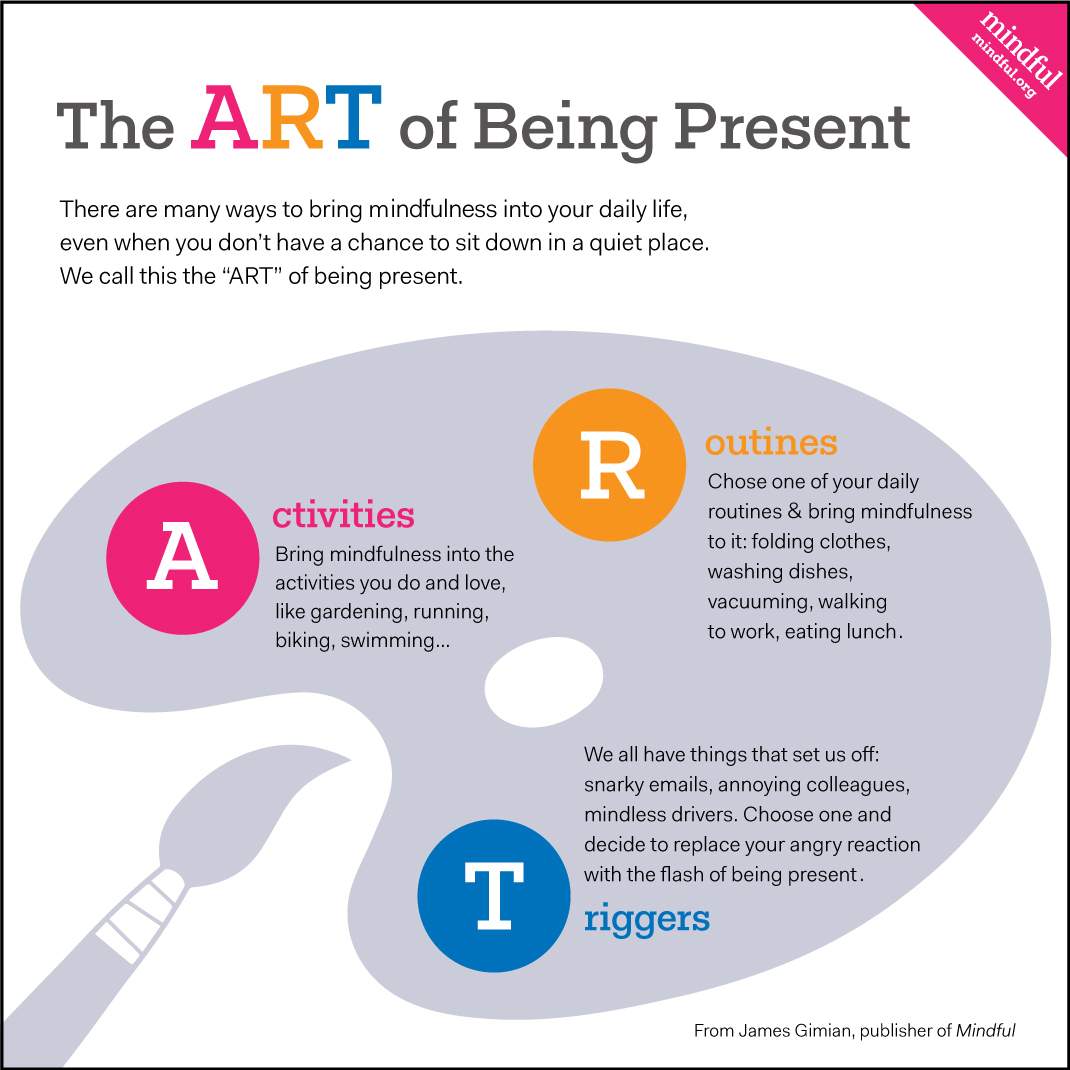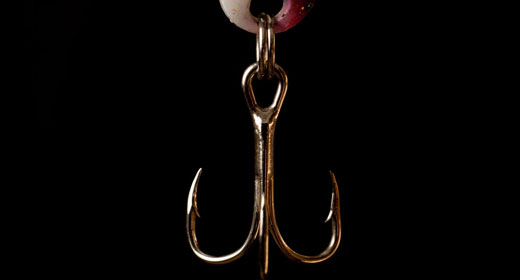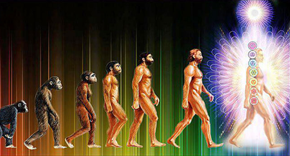by James Gimian: Mindfulness is available to us in every moment, not just the special or precious ones. We just have to tune into it throughout the day…

I’ve often experimented with ways to weave mindfulness practice into the speed and hubbub of daily life. The premise is simple: mindfulness meets the moment, the result is being present, and that can’t be bad. It also has the benefit of undermining that recurring thought “shouldn’t I be setting aside some more time for my mindfulness practice?”
Bringing mindfulness to the activities we already choose to include in our lives is a great way to start. Many of these activities—gardening, running, biking, and swimming come to mind though the list is long—already have a kind of natural quiet to them. So it’s not a big leap, and it can be time well spent in more ways than one.
When we bring mindfulness into our daily routines (dishes, laundry, eating) what we’re doing is bringing a bit more focus to each moment. Without that focus, the things we routinely do around the house or at the office tend to be part of our “accomplishing self,” that part of our selves that is goal-oriented and constantly checking off a to-do list. It’s hard to be mindful when your activities are only part of a bigger plan to get things done.
For example, when washing the dishes is just part of “cleaning up the kitchen,” it makes it harder to be with that one moment fully. We tend to rush to get things done in order to get to the next task. And it’s when we’re in this “doing” mode that we can easily start cycling through the to-do list rather than being with what’s happening in the moment.
I especially like the practice of bringing mindfulness into a daily routine when that routine includes other people, like having lunch or holding a meeting. It reminds me that we don’t have to be alone to bring our awareness into whatever we’re doing in the moment.
Being mindful isn’t simply the outcome of doing a regular more “formal” practice, a prize, so to speak, that we get for being dutiful. It isn’t a byproduct of something we did before; it’s just what we’re doing now.
When I’m ready for a bigger challenge, I play with bringing my awareness to those times when I get triggered. I recognize these moments when my reaction to the trigger brings a churning stomach and racing heartbeat, and next thing I know I’m in the middle of an angry moment before I know what hit me. During one very busy time in my life the trigger was the seemingly innocuous ring of my telephone, which I was sure was one more person calling to demand one more thing of me.
Bringing mindfulness practice into the trigger moments of our every day life is like going mano-a-mano, so to speak; it’s a very energetic practice. It’s also a helpful reminder that mindfulness practice isn’t always being passive or predictably serene. It’s not just about the happy or “clear moments” but about the tough ones too. And nowadays we seem to have a pretty steady diet of tough moments, so it’s good to have a little help with them.
Another main benefit of the “art of being present” is that it reminds me that mindfulness is both a practice and a simple way of being. Being mindful isn’t simply the outcome of doing a regular more “formal” practice, a prize, so to speak, that we get for being dutiful. It isn’t a byproduct of something we did before; it’s just what we’re doing now.
At the same time, clearly it’s not about one form of practice versus the other, not about bringing mindfulness into our daily life rather than setting aside time to sit quietly. It’s about how one can energize the other and about how the two work together to create a continuity of awareness. And that can really help with those hectic times in life. Try it and see for yourself.
The ART of Being Present
There are many ways to bring mindfulness into your daily life, even when you don’t have a chance to sit down in a quiet place. We call this the “ART” of being present.
Activities. Bring mindfulness into the activities you do and love, like gardening, running, biking, swimming…
Routines. Chose one of your daily routines and bring mindfulness to it: folding clothes, washing dishes, vacuuming, walking to work, eating lunch.
Triggers. We all have things that set us off: snarky emails, annoying colleagues, mindless drivers. Choose one and decide to replace your angry reaction with the flash of being present.








































